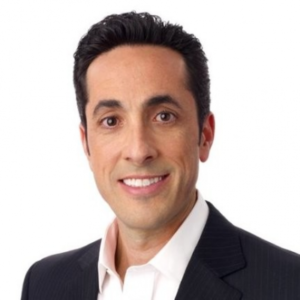We continue our Practitioner Interview Series with Steven Baruch, former EVP & Chief Strategy and Marketing officer at MSC Industrial Supply, a $3 billion industrial equipment distributor.
We talked about corporate strategy and how a strong process for running corporate strategy can separate good companies from great ones.
Master B2B: In your last role at MSC, you oversaw corporate strategy. I wanted to start with a basic question: What is strategy? I know that half the people graduating from business school say that they want to go and do “strategy work.” But if you ask them what they mean, they say “I want to think about the whole business.” But that’s not what strategy is.
Steve: Strategy is the collection of actions that you take that are unique and differentiated that positions you in the market in a way that can yield the results you are looking to achieve. Or basically, it’s a collection of differentiated actions and behaviors and activities. And those differentiated actions, behaviors and activities have to support the purpose of the organization. And when you consider all of that together, that’s what creates enterprise value.
Master B2B: Where should strategy live in the organization?
Steve: Strategy development should live firmly in the C-Suite. You cannot delegate strategy. It’s your company’s purpose and your reason for being. It’s how you are going to uniquely differentiate. But ultimately the most important thing a company can do is to consistently refresh the strategy in the most informed way possible.
We need to continually think about who we are, what our purpose is, and how we differentiate. We need to ask ourselves: As the landscape continues to shift incredibly quickly around us, are we challenging everything to make sure that this company’s long-term path is still secure?
I think there are a lot of companies that create strategy teams or have strategy cross functional groups of people with representation from all functions of the business. Now, I’m not saying that strategy couldn’t and shouldn’t be a team sport because you do want to get that input from as close to the ground as you can. But you cannot delegate strategy.

Master B2B: What was the structure of how you approached that strategy process? Were there quarterly meetings? An annual budgeting process? Something else?
Steve: I’m an advocate of thinking about strategy in longer strokes. If your strategy is built around something that’s 10 years from now, legitimately you’re just not going to be able to effectively predict what’s going to happen even in five years to make the balance of that time useful. I believe that anything more than three-to-five years is not useful from a strategy planning perspective because the world just changes too fast within that time frame.
So I think about a three to five-year span…
And then it’s an annual process where you’re still within the confines of that three-year strategy. Looking at the past year to say, “Has anything changed this year? Are we still on track? Have we done what we said we were going to do? And did the market do what we thought? And, most importantly, are the results that we are delivering consistent with what we predicted?”
And then ask what course corrections are implied by what we’ve measured on an annual basis. And with that plan, I can predictably move from where we are today to where we want to be in three years because I’ve now broken that down into annual chunks.
Master B2B: If the world changes during that 3 year time frame, are people inherently defensive about defending their original position? Or are they willing to accept that the world has changed and they need to reconsider their ideas?
Steve: The way to combat that is with the discovery work that I do at the beginning of the strategy process. I always talk to the team about looking in the mirror and saying, “Who are we?” Meaning, who are we based on what data would actually support. What does our engagement survey tell us? What does our NPS survey data tell us? What do industry analysts tell us? When it’s data-driven you’ll see that you can’t really defend some of the gaps between what we think and what the data points are telling us.
Master B2B: During that process, you may find that you need to bring in new senior people who can manage in a data-driven way. When you’re hiring for senior roles, do you need to make sure they’ve worked in this way in the past, or can they be taught how to work in a data-driven organization?
Steve: You have to hire for cultural fit. I think if you take a super successful, wickedly smart person from a company where the ends justify the means, that’s not going to work in an organization like ours that’s founded on a bedrock of values and principles and culture. Our CEO had every reason to be everything but humble, and he was nothing but humble. He was the first to say we’re better together if we can admit what our flaws are and support each other in closing those gaps.
At MSC we would tell you that the reason the company is still around while many others have failed is because we lived by a credo and a culture that drove the success of the business. It wasn’t in spite of that. We derived our success from our culture and how we treat people. If that behavior is modeled from the top, it won’t be seen as a sign of weakness.
Master B2B: One thing that’s struck me as I’ve worked with family businesses is how long a view they take. Because many have been around 50 or 100 years, they seem to think about their decisions in a much longer timeframe than, say, a public company that has to report financials quarterly. This is sometimes viewed as a negative – that it leads to slow decision making. But one of the positives is that culture and values matter because that’s what’s gotten them to where they are today.
Steve: Those aren’t mutually exclusive. Part of the culture should be delivering results. The quirkiness of a family business is always there. But if that matriarch or patriarch has shown over time that “my word is my bond” as well as being innovative and competitive, that combination is the differentiator.



